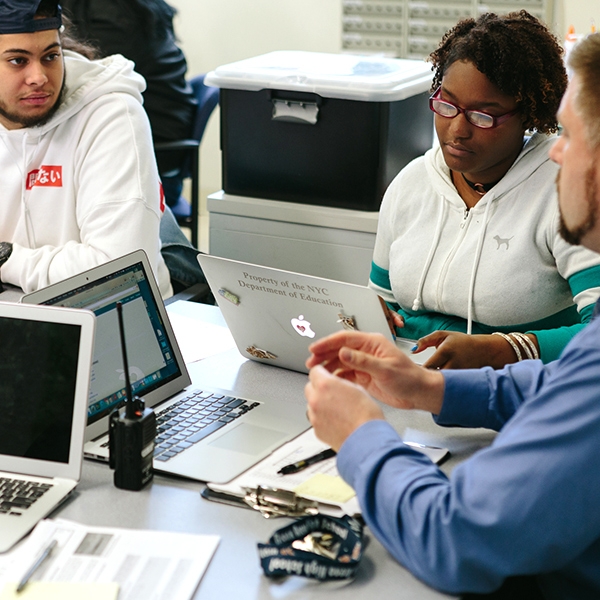
At TLA, we believe that the use of data is one of the most powerful strategies for realizing an effective, engaging, and equitable outcome for every child in classrooms across America. As our friends at the Data Quality Campaign (DQC) say, when used in service of learning “data is one of the most powerful tools to inform, engage, and create opportunities for students along their education journey—and it‘s much more than test scores. Data helps us make connections that lead to insights and improvements.”
In our own research in classrooms over the last six years, we’ve found that judicious and strategic use of data is a lynchpin for making other strategies, like personalization and mastery- or competency-based progression, actually work in the classroom. Data are necessary to help educators to: gain richer insights about student mastery and motivation to differentiate and offer more choices, empower students to track and own their own learning, and illuminate what’s working (or not) at individual, classroom, and school levels to make these other approaches powerful.
Education technology has the potential to bring more data to the table, offering teachers, students, and families the opportunity to move beyond one-dimensional data points (e.g., a single test score, report card, or end of year assessment) to have more dynamic, triangulated conversations about learning, to ask “what’s next?” and collaboratively identify specific actions – including interventions and extensions – to deepen learning and solve challenges.
But, as many know, more data itself doesn’t always lead to better instructional outcomes. In our work in blended and personalized learning, we’ve found the availability of more data can increase the analysis and planning load on already overburdened teachers. (Indeed, DQC recently found 57% of teachers said they don’t have enough time to use data, and another third noted that there simply is too much data available.) So, despite the huge potential, researchers have noted that educators struggle to fully integrate the data coming from available tools. In some of these cases, we’ve found education technology can be a double-edged sword in certain blended learning settings; absent of the strategic use of data produced on- and offline, technology can quickly become no better than a babysitting tool, keeping kids “on task” but necessarily not learning much.
Put together, all of this means that we’ve got work to do to get better not just at producing but collecting, analyzing, and acting upon data. Schools must create robust systems and routines all actors can use to continuously monitor progress, developing understanding and then moving to action.
So where are we, as a sector, in that journey, and what might we do to get better?
Over the second half of 2018, the TLA team sought to investigate just this question, looking at the current state of classroom data use in school systems across the country. We engaged with hundreds of educators through interviews, surveys, and site visits to learn exactly what kind of assessment data they use to inform classroom instruction and how. We received a clear picture from hundreds of teachers about the types and value of various assessments and tools as well as a lot of ideas for how to get better.
Over the next few months, our team will be sharing out some of our key learnings on this project in this blog series. We’ll provide some clarifications in areas where we heard confusion and share some of the practical strategies leaders at every level can use. Finally, we’ll identify a few areas where additional work is needed as well as potential pathways we can take forward together.
In the meantime, here are a few (free) resources to check out to begin to meet your 2019 data resolutions. We believe these are particularly helpful starting points for any educator looking to ensure they’re using data to inform and drive outcomes for kids:

